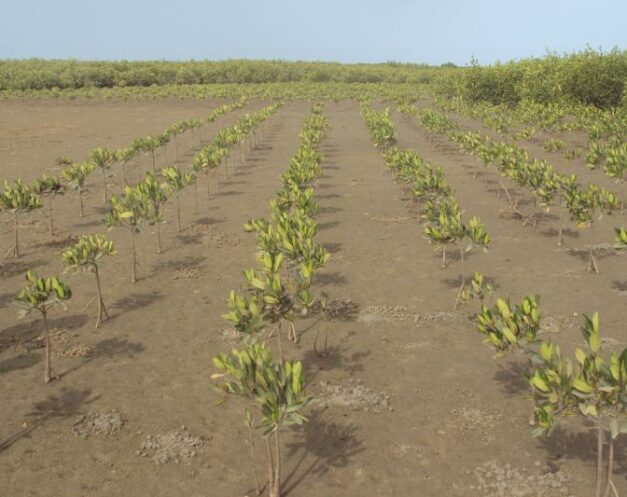BMZ reforestation project

Project background
Senegal’s coasts are the site of major trade flows, generating high levels of biological productivity that benefit numerous plant and animal species. They are home to special habitats such as mangroves and many protected areas (PNDS, Abéné MPA, Joal-Fadiouth MPA, etc.). These habitats provide refuge for many endangered species, are an essential link in the migratory bird route, and perform enormous ecological functions such as: flood control, groundwater recharge, coastal stabilization and storm protection, sediment and nutrient retention and export, carbon storage capacity, water purification.
Thanks to its hydrological and ecological functions, the mangrove ecosystem is a source of sustainable livelihoods for riverside communities.
However, shaken by the effects of climate change, manifested in inter-annual rainfall irregularity, shorter rainy seasons, rainfall deficits, rising temperatures, sporadic floods, droughts, etc., the resources of the mangrove ecosystem are becoming increasingly scarce and degrading. Climate change will continue to significantly affect this area, leading to low productivity in fishing, seafood farming and related activities, notably cel
